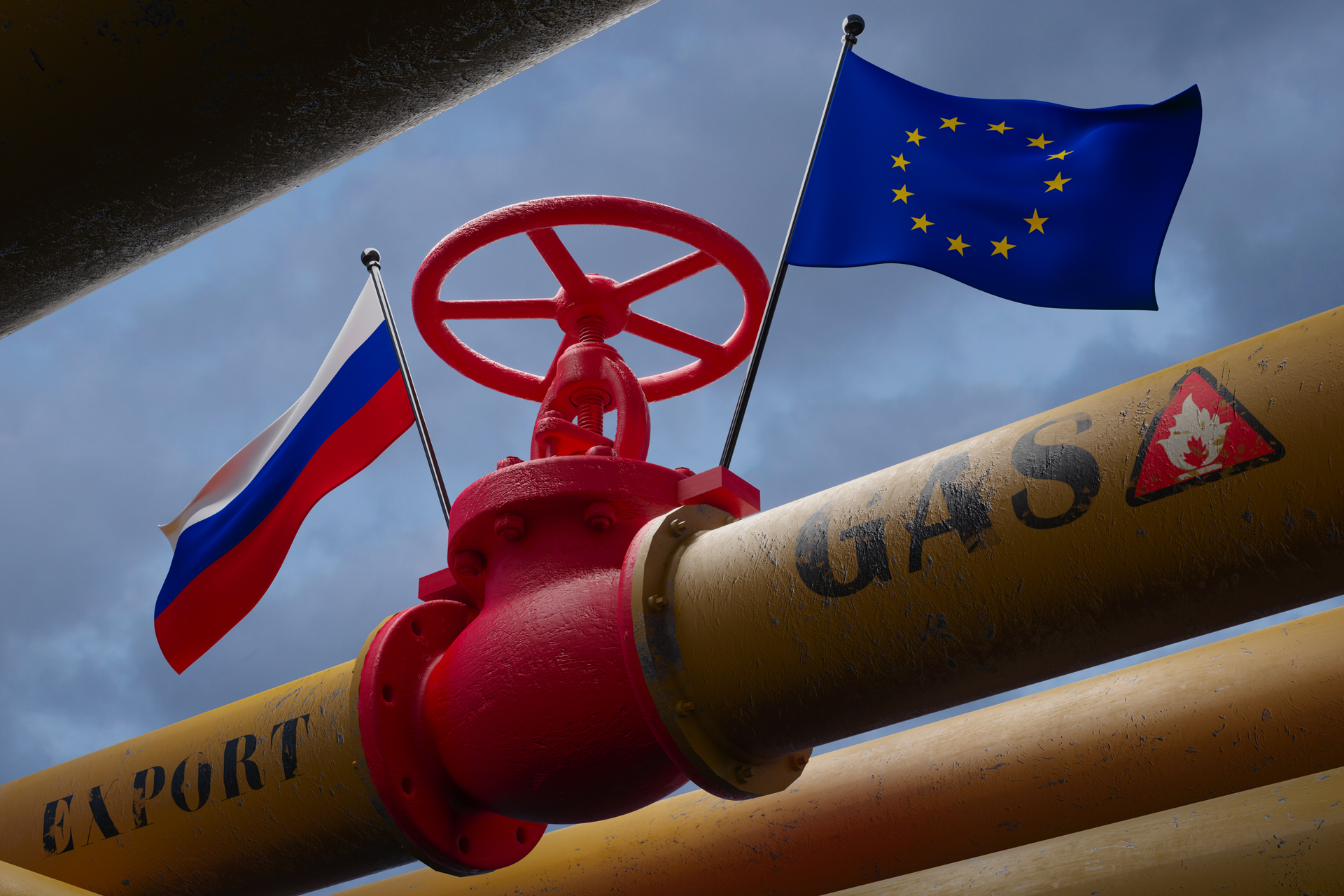Europe faces a deep energy crisis as it prepares for a cold winter;
Gas prices are at record levels, supplies are falling, and concerns are rife.
On the continent, energy is used in a range of activities, including transportation, homes, industry, services, agriculture, forestry, food production, fertilizers, harvesting, cooling and heating.
The markets for the dairy and bakery industries were hit hard;
Because it is energy intensive.
Butter prices have increased by 80% since the beginning of the year until last August, while cheese prices have increased by 43%, beef has increased by 27%, and milk powder has increased by more than 50%.
70% of production stopped
Fertilizers were also severely affected, and their prices increased by 60% annually, which put farmers under economic pressure and halted 70% of the region's production.
With the prices of gas and electricity now rising, and millions of people spending record amounts of their income on energy, experts are also seeing huge levels of fuel poverty, which causes major problems on top of which people are unable to heat their homes.
Experts stated that those who suffer from pre-existing health conditions, such as asthma or heart disease, or are on the way to recovery from surgery, or the elderly or disabled and those who are exposed to colds, a wet house, can make all their pre-existing health conditions worse. .
Even arrangements for how to sleep
Some people with disabilities reportedly did not charge their wheelchairs during the summer in the UK because they were concerned about whether they would be able to afford public utility bills.
There were also stories about families who had already started to think about sleeping all together, with the children, in one room to save energy.
In terms of energy stocks, Europe has already ensured that its storage facilities will be refilled by 80% by next November.
The continent will likely have enough fuel to generate electricity this winter.
However, the stability of the continent depends on the existence of a relatively "normal" winter;
Because if temperatures drop, it could increase demand to levels that precautions can't handle.
Therefore, the worst case scenario is a very cold winter.
Free fall of the economy
In this worst-case scenario, the European economy is expected to enter a state of absolute free fall;
Because nothing will be able to be produced, because it is too expensive, and because the government prioritizes sending gas to heat homes rather than industry.
So far, the European Center for Medium-Range Weather Forecasts said Europe could experience a colder, drier winter, with lower winds likely.
Experts agree that while this season is tough, it will likely overtake Europe this winter, but the worry is what will happen next year.
They can't live a normal life
Carlos Torres Diaz, head of electricity at Rystad Energy, an independent research and business intelligence company in Oslo, Norway, said he believed there would not be a massive energy crisis in which the lights suddenly went out across Europe, “but surely, there has to be rationing. And some awareness that you can't just live a normal life."
Diaz added that the situation will be more difficult next year, no matter what happens, because the current stock will be emptied, and will not be compensated in the same amount.
Anger is increasing day by day
In the current scenario, if utility bills continue to rise, unemployment numbers increase, and there is an economic slowdown, experts believe that this may be reflected in the streets as well.
"There are protests already planned," said Simon Francis, coordinator of the End Fuel Poverty Coalition, speaking from the United Kingdom. "There are a whole bunch of things that the government is not doing, and that basically exacerbates the cost-of-living crisis and the fuel shortage crisis, and we'll see. I think the anger It is increasing day by day."

